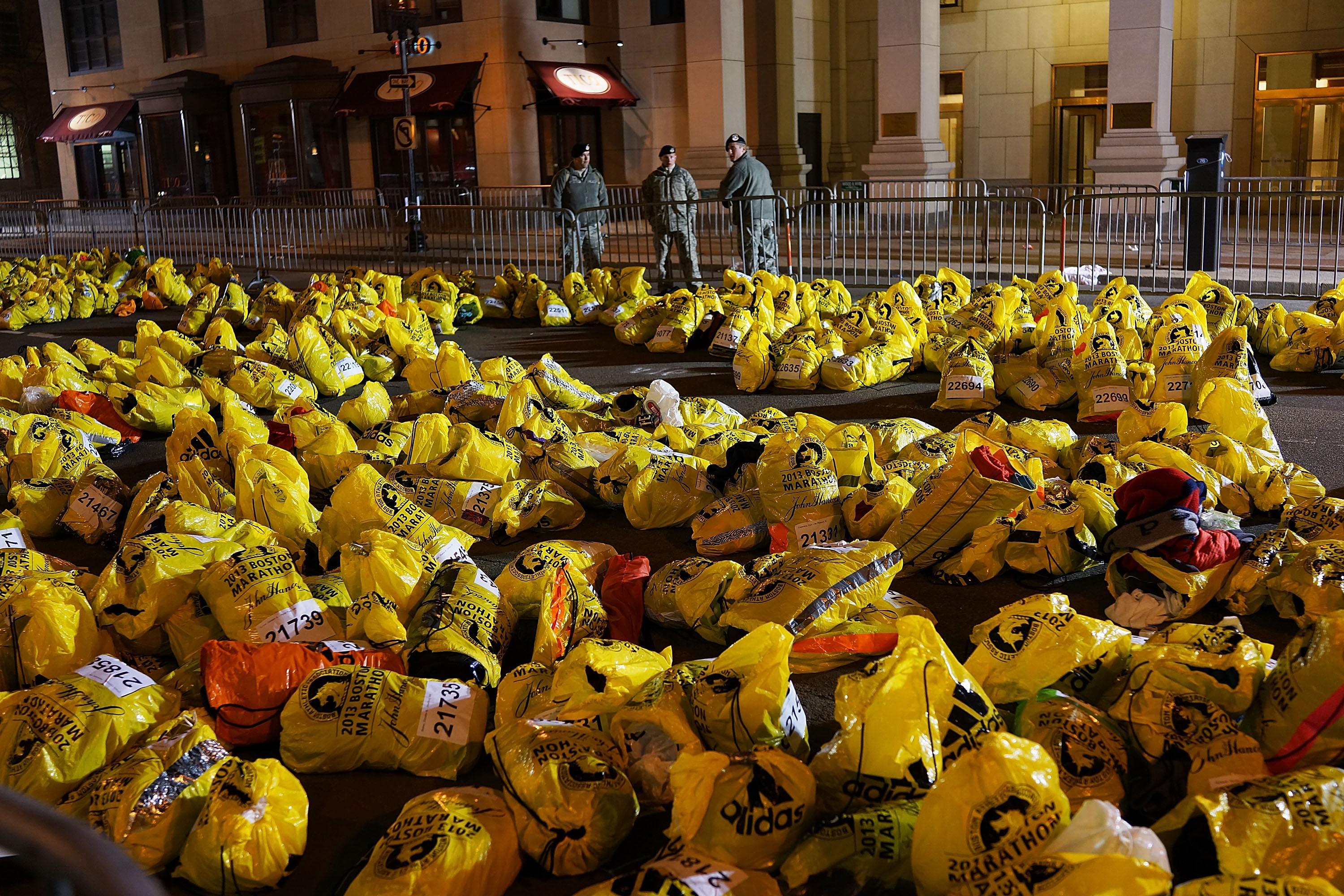BOSTON—The intersection of Newbury and Clarendon streets is littered with sheets of silver Mylar. Marathon runners use these so-called space blankets to warm themselves after completing a race. Tonight, though, eight hours after bombs exploded near the finish line of the Boston Marathon, killing at least three people and injuring more than 100, the Mylar blankets lay bunched up on the street, unused, like the wreckage of some spaceship.
Boston feels otherworldly tonight. The streets are desolate, strewn with cases of bottled water, trampled bananas, discarded signs of encouragement for runners who may not have even finished the course. Most nights, Copley Square is lively with traffic, panhandlers, partygoers, businessmen. Now, the streets are cordoned with temporary metal fences and yellow police tape; in the middle of the square, a medical tent.
My wife lives here, in the Back Bay section of Boston, three blocks from where two explosions ripped through Boylston Street near the Boston Public Library. I would have heard the blasts from my couch if I had been home with her. I came back to Boston from New York almost as soon as I heard the news, and as I traveled, I was transfixed by the photographs streaming to my phone: blown-out store windows, blood-stained streets, images that are devastating because they’re so familiar. I know these stores. I know these streets.
You can’t get near the site of the explosions now, as the entire Copley Square area is barricaded, but you can walk the perimeter. I spent a couple of hours doing that after I got into town, just trying to clear my head. At Boylston and Berkeley, hundreds and hundreds of unclaimed yellow runners’ bags waited to be reunited with their owners. They were piled up behind temporary fencing, watched over by young members of the Air National Guard, who seemed just as shellshocked as the runners who, in ones and twos, came to collect their stuff. When nobody was watching, some of the Guardsmen crept up to the Boylston Street barricade, silently pointing their cellphone cameras in the direction of the debris.
Outside the Back Bay train station, about three or four blocks from the site of the explosions, two vagrants discuss the day’s events. “I was sittin’ there, drinkin’ a pint, and then, whoa!” one says, re-enacting the scene for the benefit of his friend. “Then they got another scare, evacuated all the hotels. I’m telling ya!” He paused a moment, then shifted to another topic. “Mumbles broke his leg last night,” he said.
Ten feet away, a local TV reporter is delighted to learn that the journalist standing next to him is from Germany. (The international press has been arriving all night, lugging big suitcases and checking into Back Bay hotels.) “I’ve got friends in Hamburg. I’m going to the Hamburg Jazz Festival next month,” he says, before turning to the camera as he goes on air. “Let’s set the scene here,” he says, suddenly somber.
Everybody is talking to fill the silence. But the silence speaks for itself. The streets are cordoned with police tape, but Boston is a big city, and the cops can’t guard every blocked-off street and alley. I walk away from the bums and reporters, slip under some police tape, and head up dark Blagden Street, directly behind the Boston Public Library. On my left, the huge, half-circular windows of the library’s modernist Johnson Building reveal an empty, brightly lit reading room. On my right, three women smoke cigarettes outside an apartment building, looking like they’ve run out of tears. Straight ahead is Exeter Street, right where it happened. The road is blocked with police cars. I can’t see much at all, except for, in the near distance, emergency personnel in white hazmat suits, digging and sifting and trying to figure out what just happened here.
Read more on Slate about the Boston Marathon bombing.
